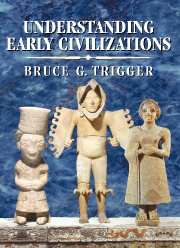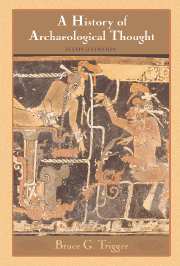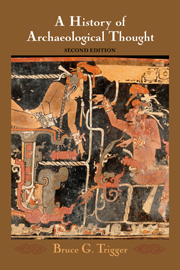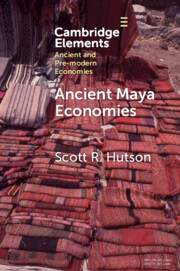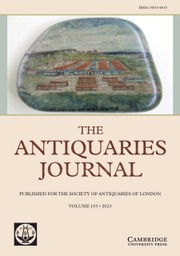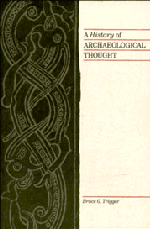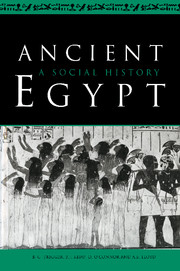Understanding Early Civilizations
Arising independently in various parts of the world, early civilizations--the first class-based societies in human history--are of importance to social scientists interested in the development of complexity, while their cultural productions fascinate both humanists and the general public. This book offers the first detailed comparative study of the seven most fully documented early civilizations: ancient Egypt and Mesopotamia, Shang China, the Aztecs and their neighbors, the Classic Maya, the Inca, and the Yoruba. Unlike previous studies, equal attention is paid to similarities and differences in their sociopolitical organization, their economic systems, and their religious beliefs, knowledge, art, and values. Many of this study's findings are surprising and provocative. They challenge not only current understandings of early civilizations but also the theoretical foundations of modern archaeology and anthropology. Rival cultural and ecological approaches are demonstrated to be complimentary to one another, while a comprehensive understanding of human behavior is shown to require that more attention be paid to psychology and the neurosciences.
Bruce G. Trigger is James McGill Professor in the Department of Anthropology at McGill University. He received his PhD from Yale University and has carried out archaeological research in Egypt and the Sudan. His current interests include the comparative study of early civilizations, the history of archaeology, and archaeological and anthropological theory. He has received various scholarly awards, including the Prix Leon-Gerin from the Quebec government, for his sustained contributions to the social sciences. He is an honarary fellow of the Society of Antiquaries of Scotland and an honarary member of the Prehistoric Society (U.K.). His numerous books include Sociological Evolution (Blackwell, 1998), Early Civilizations: Ancient Egypt in Context (Amer. Univ in Cairo, 1993), A History of Archaeological Thought (Cambridge, 1989), and The Children of Aataentsic: A History of the Huron People to 1660 (McGill-Queens Univ., 1976).
- Comprehensive - first comprehensive study of how early civilizations worked
- Comparative - a major contribution to the comparative study of human behavior
- Challenging - calls into question conventional understandings of how a comprehensive theory of social behavior can be constructed
Reviews & endorsements
"This is a major work of anthropological archaeology. Its comprehensiveness of theme, readiness to pursue profound if difficult and sometimes not readily answerable questions, and impressive control of a wide range of sources, reflect distinguished thought and dedicated effort. It stands out among comparative approaches to early human societies for its breadth and systematicity...This is as good a place as there is for the next generation of scholars to obtain a solid introduction to the intellectual substance of a field of great breadth and promise. The book should act as a powerful stimulant to the revitalization of comparative studies." Robert McC. Adams, University of California at San Diego, The International History Review
"Its comprehensiveness of theme, readiness to pursue profound if difficult and sometimes not readily answerable questions, and impressive control of a wide range of sources, reflect distinguished thought and dedicated effort. ...a major achievement." The International History Review
"Understanding Early Civilizations is the capstone of Trigger's remarkable archaeological career. No archaeologist is better qualified to undertake the challenging task of comparing seven ancient civilizations in such exhaustive detail. He has succeeded brilliantly. Trigger's effortless command of the literature and dispassionate approach to the complex theoretical issues ensure that Understanding Early Civilizations will become a classic. This is, quite simply, a definitive work." Brian Fagan, University of California, Santa Barbara
"Long acknowledged as the premier historian of the discipline of archaeology in the Anglophone world, Bruce Trigger now must be recognized as its most knowledgeable authority of early civilizations. Understanding Early Civilizations presents a highly specific and richly detailed comparative analysis of seven 'early civilizations' or early class-stratified states that are viewed as essentially independent examples of the development of complex society. His study is written in the grand evolutionist tradition that emphasizes similarities in the social, economic, and cultural structures of these early civilizations despite their idiosyncratic or specific manifestations. Trigger's study is monumental and magisterial. It is a work to treasure and digest for years to come." Philip L. Kohl, Wellesley College
Product details
May 2003Hardback
9780521822459
774 pages
237 × 186 × 49 mm
1.61kg
Available
Table of Contents
- Part I. Introduction:
- 1. Rationalism and relativism
- 2. Comparative studies
- 3. Defining 'early civilization'
- 4. Evidence and interpretation
- Part II. Sociopolitical Organization:
- 5. Kingship
- 6. States: city and territorial
- 7. Urbanism
- 8. Class systems and social mobility
- 9. Family organization and gender roles
- 10. Administration
- 11. Law
- 12. Military organization
- 13. Sociopolitical constants and variables
- Part III. Economy:
- 14. Food production
- 15. Land ownership
- 16. Trade and craft specialization
- 17. Appropriation of wealth
- 18. Economic constants and variables
- Part IV. Cognitive and Symbolic Aspects:
- 19. Conceptions of the supernatural
- 20. Cosmology and cosmogony
- 21. Cult
- 22. Priests, festivals, and the politics of the supernatural
- 23. The individual and the universe
- 24. Elite art and architecture
- 25. Literacy and specialized knowledge
- 26. Values and personal aspirations
- 27. Cultural constants and variables
- Discussion:
- 28. Culture and reason
- 29. Conclusion
- References
- Index.

